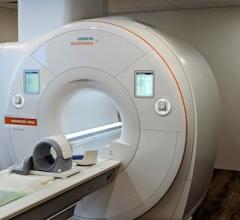
May 21, 2020 — In response to the significant healthcare delivery changes brought on by COVID-19, Varian has launched new capabilities for its Noona software application, a powerful tool designed to engage cancer patients in their care for continuous reporting and symptom monitoring. Noona supports cancer care teams as they face new short- and long-term healthcare changes created by the pandemic by providing in-app features such as patient screening, real-time symptom reporting, secure care team messaging, telephone triage workflow automation, and patient access to medical records. In addition, Varian has designed a new approach to quickly and remotely implement the solution to put it in the hands of cancer patients and care teams faster, without increasing the risk of COVID-19 exposure.
"In light of COVID-19 and the difficulties it poses to the current state of cancer care delivery, cancer patients are more vulnerable than ever," said Jeff Patton, M.D., executive chairman, Tennessee Oncology – one of the nation's largest community-based cancer care groups – and CEO, OneOncology. "Now more than ever, we need solutions to remotely communicate with and manage our patients to protect them and our team who cares for them. Noona is an invaluable solution for facing the results of the pandemic, and we are confident it will serve as a strong foundation in the new care landscape for clinicians and patients well into the future."
Noona has made a positive impact on care offered by Tennessee Oncology, with nearly 600 care team members using Noona; around 10,000 patients accessing the Noona patient app to report symptoms and communicate with clinicians; and about 31,000 patients being managed through the telephone triage workflow automation. Like other clients, Tennessee Oncology is experiencing even more demand for the Noona patient app with patient adoption steadily increasing by about 1,000 new patients a month since the beginning of the pandemic.
"Telemedicine and digital communication are here to stay, so do it now and do it forever," Patton advised. "Noona has helped us reduce the risk of exposure for patients and staff, while keeping our healthcare communities fully informed. Since the COVID-19 outbreak first hit, we've found our 'new abnormal' and at the moment it's stable so we can function in a steady state."
"Solutions like Noona have proven their ability to reduce emergency room visits, and with the altered state of healthcare brought on by COVID-19, the value that Noona offers has never been more needed," said Jani Ahonala, vice president, global patient outcomes, at Varian. "When the current pandemic began, we reprioritized our team's daily activities to quickly help our customers and patients across the globe."
The Varian product team quickly developed and released a new COVID-19-related symptom screening questionnaire. A series of questions specific to COVID-19 symptoms, as defined by the World Health Organization and Centers for Disease Control and Prevention, guides the process and taps into severity grading options that, via a back-end algorithm, will alert the cancer clinic with a "Red" or High Alert status, allowing care teams to act quickly.
Due to the many new requests for the Noona solution from other cancer care organizations, the team also reengineered the implementation process to remotely and quickly get other clinics up and running. The new rapid deployment process allows solution experts to configure and set up an entirely new cancer organization and virtually train care team users through video conferencing tools and pre-built education materials – in just a few weeks' time without being onsite.
For more information: www.varian.com


 February 13, 2026
February 13, 2026 









